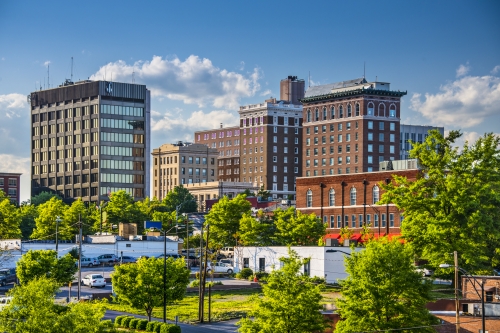What is South Carolina’s Business Climate?
Our friends at the Tax Foundation publish a State Business Tax Climate Index every year. In the 2022 edition, South Carolina’s Overall Rank was 31st out of 51 (50 states plus DC).
Meh.
Digging a little deeper into the Index, we find that rankings on 5 scales, each of which is weighted, combine to form the Overall Rank. Those 5 are: Corporate Taxes, Individual Taxes, Sales Taxes, Property Taxes, and Unemployment Insurance Taxes.
South Carolina is competitive on Corporate Taxes, and in recent years the Palmetto State has begun to chip away at high Individual Tax and Unemployment Insurance Tax rates.
Sales Taxes are creeping up with local option taxes galore, but real reform will need to be comprehensive: cut the rate from 6% to 3% and broaden the base. Carve outs driven by politics leave 2/3 of sales untaxed.
That leaves Property Taxes. What the Tax Foundation means by this in terms of Business Climate is: what is the impact of real and personal property taxes, inventory taxes, estate taxes, inheritance taxes, and other wealth taxes on the ability to do business competitively in a particular state?
When Palmetto Promise Institute conducted our tax study in 2017, we included findings from another reputable think tank, the Lincoln Institute of Land Policy. Its Fifty State Property Tax Comparison Study (revised, 2021) looked at property taxes in the largest city in each state as a proxy to draw conclusions about the levels of property tax rates statewide. Lincoln found that the predictive power of those largest city rates is even stronger when compared to rates in rural areas—county seats with populations between 2,500 and 10,000 located in nonmetropolitan counties.
If both big city rates and small rural rates are high, there is a problem.
On Commercial Property Tax Rates, Lincoln found that South Carolina is one of only 19 states where the Commercial tax rate is higher in the rural municipality samples than in the largest city in the state! The widest differences were in Kansas, New York, and South Carolina.
As for Industrial rates, Lincoln put it this way: “[F]ive states (Indiana, Mississippi, Missouri, South Carolina, and Texas) have multiple top ten rankings in both an urban and rural setting under both sets of assumptions—suggesting that these states are most likely to have the highest industrial property taxes.”
Here’s a thumbnail of the findings of the Lincoln study showing how we compare to our top economic competitor:
Property Tax Rates
Ranking (1=worst; 51=best)
SC Commercial (Largest City) 25
NC Commercial (Largest City) 51
SC Commercial (Rural County Seats) 2
NC Commercial (Rural County Seats) 38
SC Industrial (Largest City) 5
NC Industrial (Largest City) 44
SC Industrial (Rural County Seats) 1
NC Industrial (Rural County Seats) 32
It is not difficult to see how the economic climate radar of a state would show stormy weather on the horizon if local commercial and industrial property tax rates are driving businesses away.
Just another reason the General Assembly should grasp the effects of the taxing activities of counties and municipalities in South Carolina and take appropriate action.





